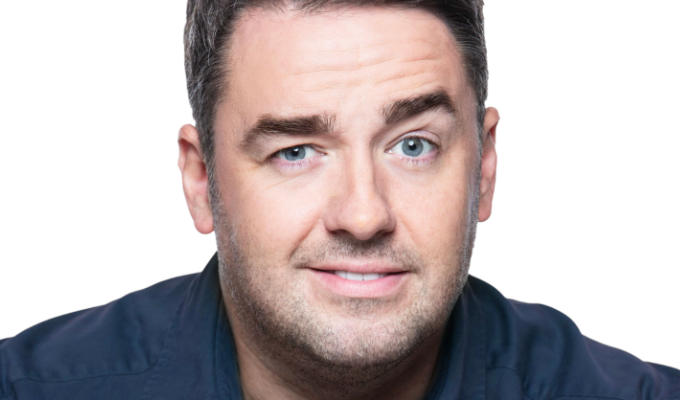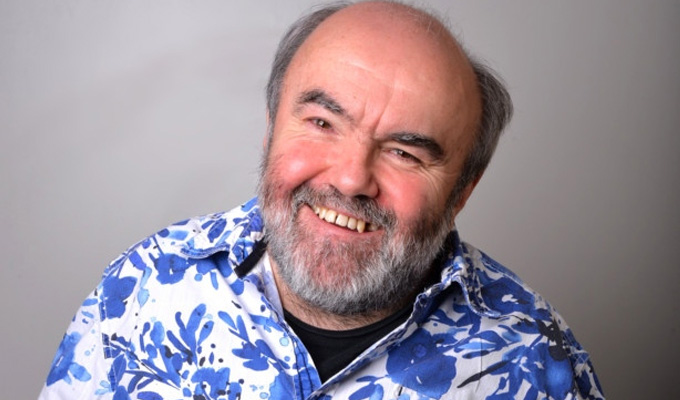
The gong's not wrong
Jay Islaam defends the gladiatorial new act nights
My first gig of 2014 was also my first performance at Manchester’s Comedy Store – throwing myself on the mercy of the audience in the infamous King Gong night. Most comedians despise gong shows, but they have their place.
There are three main arguments against them:
1. Aspiring comedians are exploited financially, with only the winner receiving any payment.
2. They are nerve-racking. Stand-up comedy is already a very anxious endeavour, as you are performing in front of a crowd of strangers asking them to judge you for your entertainment value. Further asking the audience to explicitly express their displeasure at comedians they dislike, during the act, adds a whole new layer of dread to the equation.
3. The format compromises a comedian's artistic freedom. If the audience decides they don’t like you, then your stage time is cut short. And since many a modern audience gets antsy if they feel they haven’t seen or heard anything entertaining for 20 seconds, the only way to stay on stage is to keep giving them punchy, laugh-heavy gags one after another – favouring the one-liner comedians. This means that the none-liner comedians – the storytellers, the surrealists, the musical acts and the edgy, offensive and challenging philosophers – have little hope of surviving the experience with their egos intact.
I disagree with all of the above arguments – and not just because I’m naturally contrarian.
1. I’m a realist and I believe that if someone is putting together a show – a good professional one, anyway – then I have no right to resent their being remunerated for doing so. True, a yacht-load of new comedians don’t get paid for performing at each gong show, but that’s not much different from an open mic night.
If promoters didn’t get paid they wouldn’t be putting on the professional shows. And I’m personally grateful that they do because they’re giving me the opportunity to do something I love. Sure, only one of the acts per show is being rewarded financially, and the other 10 to 20-odd aren’t. But, let’s be honest, the vast majority of that 10 to 20-odd don’t deserve to be paid because they aren’t good enough yet.
I’m well aware that statement is going to make me unpopular amongst some of my peers, but I don’t think there’s anything wrong with being honest. I’m not one for criticising individual acts publicly – I don’t feel I have the right to do that – but, if we’re honest, there are a lot of new comedians on the circuit – myself included - whose material isn’t funny enough, delivery isn’t sharp enough and stage presence isn’t what it should be to deserve payment… yet. (The 'yet' part is very important to acknowledge.)
2. I entirely understand how nerve-racking performing comedy can be. I’ll be coming up to 100 gigs very shortly and I am uncontrollably nervous before every show: I sweat, I shake, my heart races, the frequency of my bathroom visits trebles. I can’t remember a single gig where my pre-show discomfort wasn’t painfully apparent to everyone around me. But if you want to perform stand-up, and do so often enough and for long enough to become more than an amateur, it’s unavoidable. You need to have the ability to power through your nerves, move past the humiliations of stage death and keep testing new material in front of judgmental strangers.
3. The last of the three arguments against Gongs is, perhaps, the hardest to disagree with. The format does, genuinely and undeniably, only favour two (perhaps three) styles of comedy. Does that make it objectionable?
When I was a sprightly 18-year old, I was lucky enough to interview Sean Lock for a minor local newspaper. I was a naïve (read: stupid) and idealistic (read: very stupid) comedy aficionado, excited at the prospect of getting some career advice from a respected and successful headliner. I remember little from the interview except the following, at the time devastating, statement from Sean:
'Comedy isn’t therapy for bullied children. It’s a job. Funny is money.'
I remember feeling deeply unimpressed with what a shallow, small-minded, discouraging lesson I thought that was. Now I’m an adult, I wish I’d realised what a powerful and important warning he was sounding for any aspiring entertainer, and which was done out of neither bitterness nor malice, but kindness.
Comedy is a job. That’s not to say there isn’t artistic merit in what many brilliant comedians produce throughout their careers. However, when you are performing a short set (say five to eight minutes) in a comedy club then the job you’ve taken on is to make the crowd in front of you laugh hard and often. And like any other job, if you’re not willing to perform to the job description, or you don’t give a crap about whether the customers get what they’ve paid for, then you no longer deserve to be doing that job.
Like it or not, those customers, thanks to TV comedy, have come to expect a particular type of performance. Your hating that fact will not change it. If that bothers you then don’t do Gongs.
The reason the likes of The Comedy Store, Frog and Bucket, Funhouse Comedy and many other decent clubs survive is because the public are willing to put their hands in their pockets and fork out for a night of comedy. Why? Because they’ve built reputations around the quality of entertainment they consistently provide.
I don’t begrudge them their desire to protect that reputation, because their reputation is their livelihood, their very survival. For them to want to ensure you can successfully entertain their audience before they offer you ten minutes on their professional bills is not only justified, it’s downright sensible. And, while it’s not pleasant for any of the contestants, the Gong show format ensures that bookers can separate the wheat from the chaff, and at the same time ensure the chaff doesn’t ruin the evening – and, therefore, damage their reputation – by adding an entertaining element of audience participation to the proceedings.
Accepted, it isn’t entertaining for you if you’re the one being Gonged off. But it’s time for a harsh reality check. The show isn’t for you at all. It’s for the punters who paid to be entertained. If that bothers you then don’t do comedy.
• A version of this article originally appeared on Jay Islaam's blog.
Published: 7 Jan 2014






